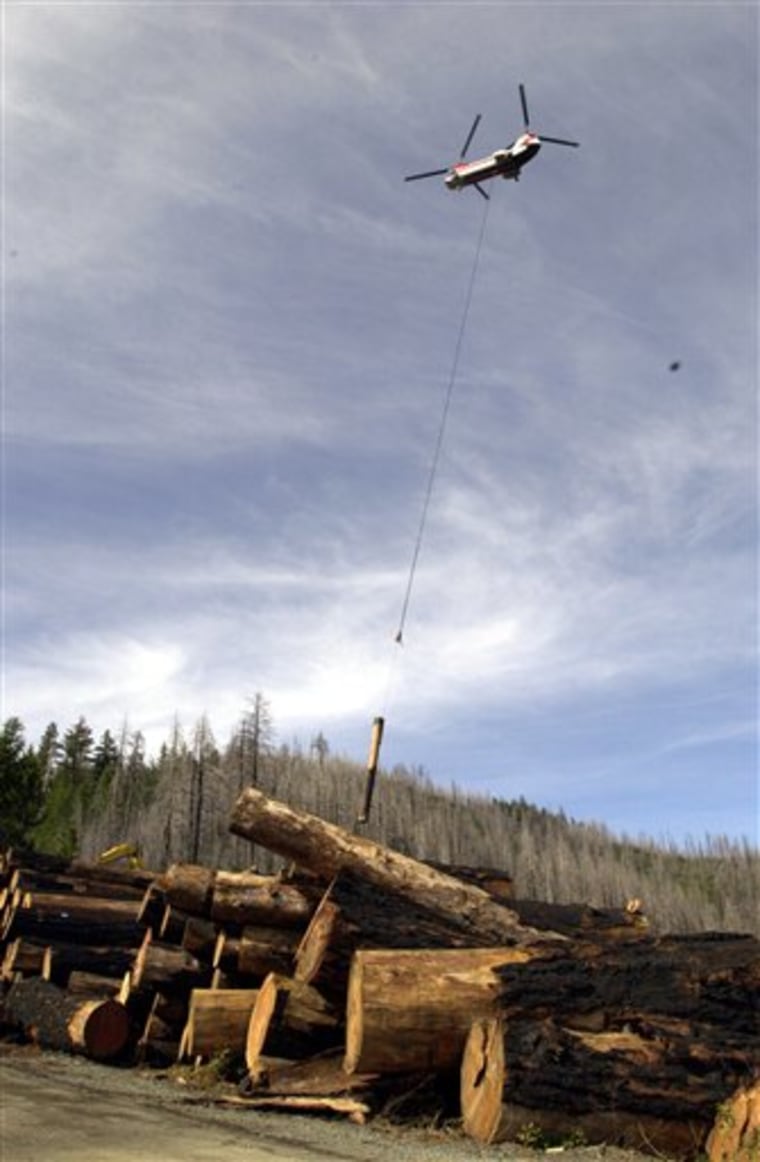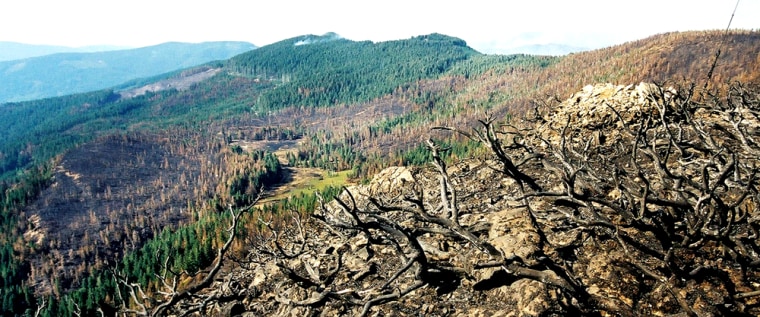The federal government spent nearly $11 million to salvage timber from an Oregon wildfire in 2002, yet it stands to get less than $9 million from selling the wood, congressional investigators said in a report released Wednesday.
The Bush administration and its Republican allies in Congress have said lawsuits filed by environmentalists caused delays that added to the cost of the fire.
The report by the Government Accountability Office, the investigative arm of Congress, acknowledged that the delays cost money, but said the administration’s decision to dramatically increase logging, coupled with the size of the fire and the complexity of environmental laws, were actually to blame for the delays.
The wildfire, dubbed the “Biscuit fire” because of its proximity to a nearby waterway, burned almost 500,000 acres in Oregon and California in 2002, making it largest wildfire in the continental United States since 1997.
Overall, 12 salvage sales in the burned areas were completed by the end of 2005, resulting in harvests of about 67 million board feet of timber, the GAO report said. The total was less than one-fifth of the 367 million board feet proposed for sale in an environmental impact statement issued by the Bush administration in 2004.
A board foot is the volume of a piece of wood 1-foot square and 1-inch thick. It takes about 10,000 board feet to build a modest two-bedroom home.
'Overly optimistic'
“Forest staff overestimated the timber available for harvest,” the report said, adding that administration estimates that salvage logging would create about 6,900 local jobs and $240 million in regional economic activity now appear overly optimistic.

The Forest Service and other agencies have spent $5 million and expect to spend an additional $5.7 million on the salvage sale of wood and other related costs, the report said. Timber sales from the logging are expected to generate about $8.8 million in revenue, GAO investigators said.
While final answers are premature, “we would expect the actual economic results to be less than the (2004) estimate,” the report said.
New Mexico Sen. Jeff Bingaman, ranking Democrat on the Senate Energy and Natural Resources Committee, said the GAO report demonstrated that the Bush administration overreached in its efforts to log large areas burned by the Biscuit fire.
“Taxpayers are going to have to spend millions more just cleaning up the damage from the logging than the government made from the timber sales,” Bingaman said. “At the same time, promises of community fire protection, habitat restoration and scientific analyses remain unscheduled and unfulfilled.”
New bill on table
The report comes as Congress considers a bill to speed up the logging of burned forests and planting of new trees after storms and wildfires. The bill, which has been approved by the House and is pending in the Senate, would order that federal land hit by disasters that involve more than 1,000 acres be restored within months, rather than years — before insects and rot set in, diminishing the commercial value of fire-killed timber.
The measure’s co-sponsors, Reps. Greg Walden, R-Ore., and Brian Baird, D-Wash., call it a commonsense plan that will be good for the environment and the economy. They cite the Biscuit fire as a prime example of the need for the legislation.
Environmental groups and a majority of House Democrats oppose the bill, arguing that cutting large old trees and planting new ones makes forests more vulnerable to new fires and less valuable as habitat for fish and wildlife. They say it is better to allow forests to come back on their own.
Sen. Mike Crapo, R-Idaho, chairman of a Senate forestry subcommittee, has said he wants a vote on the logging bill before the end of the year.
